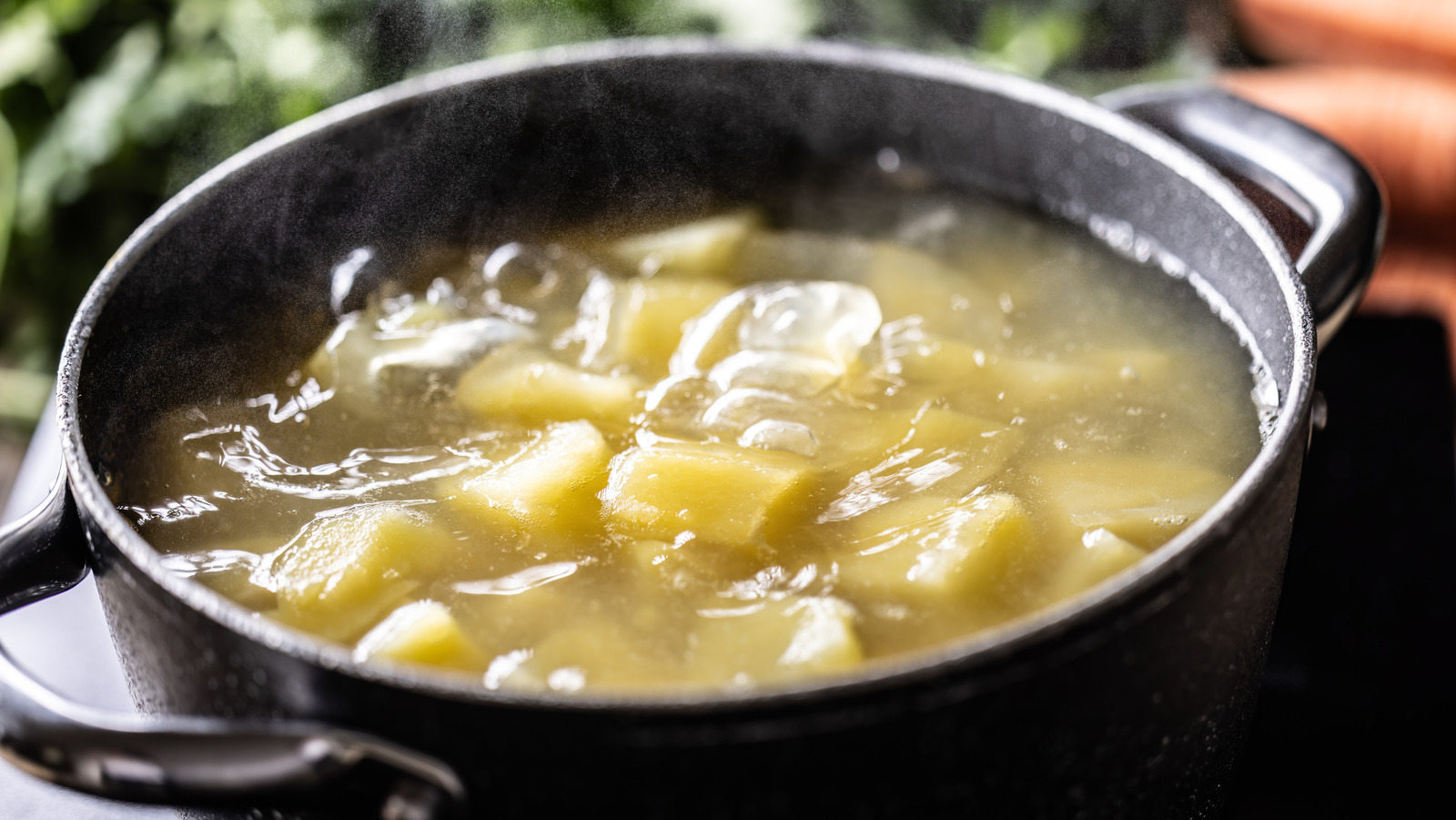Summary
Not only does reusing potato water minimize waste, but it also has a wide variety of benefits. This starchy, nutritious water is liquid gold.
Source: The Takeout

AI News Q&A (Free Content)
Q1: What are some traditional and modern culinary uses of potato water?
A1: Potato water, traditionally used in older bread recipes, is enjoying a resurgence due to its versatility. It can replace milk in bread-making to add moisture and texture, serve as a thickening agent for soups and sauces, and even be used to rehydrate dried foods. Additionally, it can be seasoned and consumed as a low-calorie drink or used as a broth alternative in soups by adding herbs and spices.
Q2: How can potato water contribute to sustainable cooking practices?
A2: Using potato water is a sustainable practice as it minimizes kitchen waste by repurposing a by-product of cooking. Instead of discarding the starchy water, it can enhance flavors and nutritional content in various dishes. This practice not only reduces waste but also contributes to a more resource-efficient kitchen by reusing what would otherwise be disposed of.
Q3: In what ways can potato water be beneficial for individuals with dietary restrictions?
A3: For those with gluten or dairy sensitivities, potato water is an excellent substitute. It can thicken soups or stews without the need for flour, which contains gluten. Additionally, potato water can replace milk in recipes, making it valuable in dairy-free diets. Its natural starch content provides a similar thickening effect as flour or milk, making it a versatile ingredient for restricted diets.
Q4: What are the nutritional benefits of using potato water in cooking?
A4: Potato water retains some of the vitamins and minerals from the potatoes, such as vitamin C and potassium, making it a nutritious addition to dishes. While it may not be a significant source of these nutrients, the starchy water can enhance the nutritional profile of soups, breads, and other recipes it is added to.
Q5: What scientific research supports the use of potato water in enhancing the flavor and texture of food?
A5: Research indicates that the starch content in potato water can improve the texture and flavor profile of foods. The starch helps bind ingredients together, leading to a smoother consistency in sauces and soups. Additionally, its natural sugars can enhance the flavor, providing a subtle sweetness that balances savory dishes.
Q6: How does the use of potato water align with current trends in food sustainability?
A6: Potato water usage aligns with the growing trend of sustainable food practices by reducing waste and utilizing all parts of food products. This approach not only conserves resources but also encourages innovative cooking techniques that maximize nutritional and flavor benefits from every ingredient.
Q7: What are some creative ways to incorporate potato water into everyday meals?
A7: Potato water can be creatively used in a variety of meals. It can be added to pancake or waffle batter to enhance texture, used as a base for homemade salad dressings, or incorporated into casseroles for added moisture and flavor. Additionally, it can be used in place of stock in risottos and pilafs, providing a subtle starchy richness.





